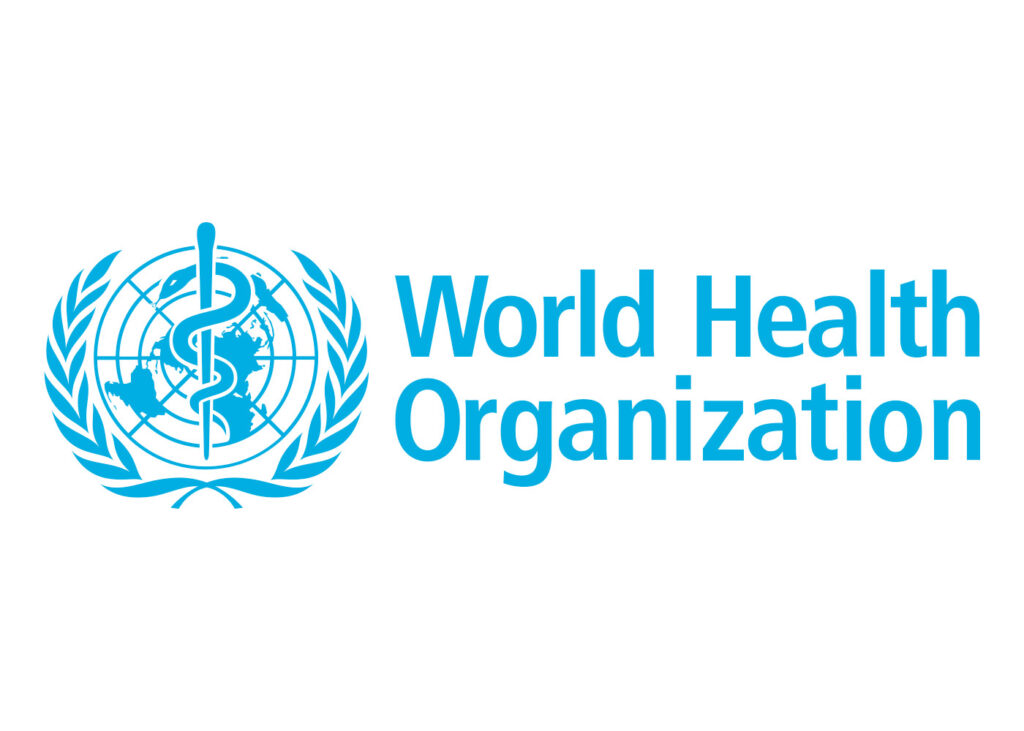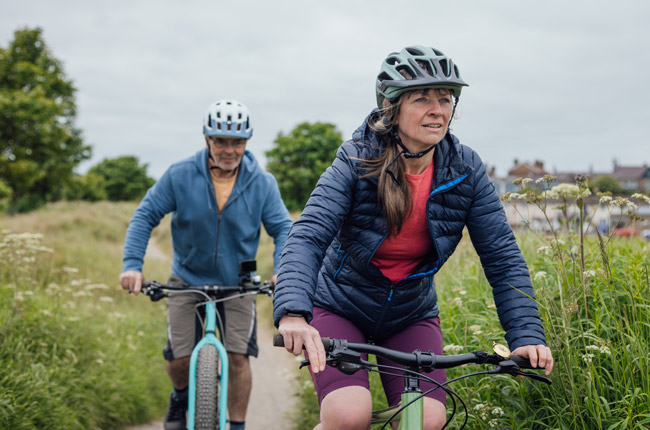Our partnerships
Working together with other organisations helps us to do more research, share our cancer prevention information and science with a broader audience and encourage governments to implement policies that make a bigger difference.
On this page
Our science and policy partnerships
-
Cancer Australia
Since 2020, we have partnered with Cancer Australia to co-fund vital cancer prevention research in Australia. The opportunity for researchers to be funded by both World Cancer Research Fund International and the Australian government, through Cancer Australia, will be available to applicants based in Australia who are investigating the role of diet, nutrition (including body composition) and physical activity in primary cancer prevention.
-
The George Institute for Global Health

Within the Institute’s Food Policy Division, the Policy and Public Affairs team at World Cancer Research Fund International engages with the WHO Collaborating Centre for Population Salt Reduction on our work to reduce salt consumption.
-
Global Obesity Prevention Center
 The Center, which is part of the Bloomberg School of Public Health at Johns Hopkins University, uses a unique systems approach to preventing obesity by concurrently studying the many causes of the obesity epidemic. We work with the Center to exchange knowledge; link science to policy and action; and maximise our impact on government policies to reduce non-communicable diseases worldwide.
The Center, which is part of the Bloomberg School of Public Health at Johns Hopkins University, uses a unique systems approach to preventing obesity by concurrently studying the many causes of the obesity epidemic. We work with the Center to exchange knowledge; link science to policy and action; and maximise our impact on government policies to reduce non-communicable diseases worldwide. -
Healthy Caribbean Coalition
 We are a member of the Coalition: an alliance of civil society organisations established to combat chronic diseases and their associated risk factors among people in the Caribbean. We share information and best practice to jointly influence and create effective methods for reducing the burden of non-communicable diseases in the region.
We are a member of the Coalition: an alliance of civil society organisations established to combat chronic diseases and their associated risk factors among people in the Caribbean. We share information and best practice to jointly influence and create effective methods for reducing the burden of non-communicable diseases in the region.The current president of the Coalition, Prof Sir Trevor Hassell from Barbados, is also a member of our Policy Advisory Group in an individual capacity.
-
International Collaboration on Nutrition in relation to Cancer
We are a member of ICONIC, which is a task force of the International Union of Nutritional Sciences. The task force aspires to build collaborations between the responsible bodies involved in nutrition and cancer at international level, with the ambition of adding value by bringing leadership, coherence and focus to existing activities, and stimulating new ones.
-
International Agency for Research on Cancer
 Our collaboration with IARC recognises our authority in the area of diet, nutrition, physical activity and cancer, and ensures that we remain at the forefront of international research. IARC shares with us the goal of producing evidence for cancer prevention and policy development in the areas of diet, nutrition and physical activity. Through our grant programme, we fund IARC to carry out research; for example to produce worldwide estimates on the extent to which cancer is linked to excess body fat.
Our collaboration with IARC recognises our authority in the area of diet, nutrition, physical activity and cancer, and ensures that we remain at the forefront of international research. IARC shares with us the goal of producing evidence for cancer prevention and policy development in the areas of diet, nutrition and physical activity. Through our grant programme, we fund IARC to carry out research; for example to produce worldwide estimates on the extent to which cancer is linked to excess body fat.We are also in the steering committee of IARC’s Cancer Prevention Europe (CPE) – a consortium of organisations across Europe with the aim of strengthening cancer prevention by increasing awareness of the needs, associated required resources and reducing inequalities in access to cancer prevention. We continue our contribution to the work of CPE by providing intellectual input in their activities.
In addition, we have partnered with IARC for the World Code Against Cancer. IARC is revising the European Code Against Cancer on behalf of the European Commission – our work forms the basis of the diet, obesity and physical activity component, and we are part of the coordination group while contributing to the lifestyle working group.
Dr Carolina Espina, from IARC’s Environment and Lifestyle Epidemiology Branch, is an observer on our Global Cancer Update Programme.
Many of our funded projects are being done by scientsits at IARC. You can see all these projects in our research database.
-
International Coalition for Advocacy on Nutrition (ICAN)
ICAN is a global coalition of more than 30 civil society organisations that work together to improve lives through better nutrition. In particular, ICAN seeks to achieve the WHO global nutrition and NCD targets by 2025, and Sustainable Development Goal 2.2 on ending all forms of malnutrition by 2030. We are a member of ICAN and our work with the coalition has included statements to WHO on tackling malnutrition in all its forms.
-
Imperial College London

World Cancer Research Fund International has been working with Imperial – one of the world’s leading universities – since 2007. Researchers at Imperial work with us on our Global Cancer Update Programme.
The research team at Imperial maintains a central database of papers on food, nutrition, physical activity and cancer, including cancer survivors, and prepare updated systematic literature reviews of the evidence as agreed with World Cancer Research Fund International, the American Institute for Cancer Research and a panel of leading independent experts from around the world. The Expert Panel makes the final judgement on the research.
As part of our commitment to developing future leaders in nutritional epidemiology, we offer annual Fellowships to outstanding applicants for the International Course in Nutritional Epidemiology, organised by the School of Public Health at Imperial.
-
National Prevention Research Initiative
World Cancer Research Fund International was a founding member and part of a consortium of 16 funding partners committing up to £12m over 5 years to support the National Prevention Research Initiative, managed by the Medical Research Council. The focus is on behaviours associated with significant risks to health – such as poor diet, lack of physical activity and alcohol consumption – as well as environmental factors that influence those behaviours. The research aims to improve health and prevent chronic diseases including cancer.
-
NCD Alliance
 NCD Alliance (NCDA) is an umbrella organisation uniting a network of more than 2,000 civil society organisations globally and works to combat the non-communicable diseases (NCD) epidemic by putting health at the centre of all policies. NCDA successfully entered official relations with the WHO at the 152nd Executive Board in February 2023.
NCD Alliance (NCDA) is an umbrella organisation uniting a network of more than 2,000 civil society organisations globally and works to combat the non-communicable diseases (NCD) epidemic by putting health at the centre of all policies. NCDA successfully entered official relations with the WHO at the 152nd Executive Board in February 2023.We are a member of NCDA and work closely with them in our advocacy work supporting global action on nutrition, NCDs and obesity.
We worked with NCDA to ensure the development and implementation of WHO’s global policy architecture for NCDs – the international processes governing the approach to NCDs. We collaborate with NCDA on WHO consultations and statements on NCD matters.
-
Our Future Health
Our Future Health is the UK’s largest health research programme. It is designed to help people live healthier lives for longer through the discovery and testing of more effective approaches to prevention, earlier detection and treatment of diseases. In 2025, World Cancer Research Fund became an affiliate charity partner of Our Future Health.
-
Southampton University
 We are funding the CANDO programme at Southampton University.
We are funding the CANDO programme at Southampton University.The aim of the CANDO programme of research is to investigate how body composition (the amount of muscle and fat) influences how patients respond to cancer treatments and the side effects they experience.
-
Union for International Cancer Control (UICC)
 UICC is a membership organisation that unites the global cancer community to accelerate the fight against cancer. We are a Benefactor partner of the UICC Championship programme and recognised as a Knowledge, Advocacy and Policy partner. Our partnership with UICC includes collaboration on scientific papers, global advocacy on cancer including on WHO statements and membership of the UICC global advocacy advisory group, as well as participation in the UICC World Cancer Leaders’ Summit and the biennial World Cancer Congress.
UICC is a membership organisation that unites the global cancer community to accelerate the fight against cancer. We are a Benefactor partner of the UICC Championship programme and recognised as a Knowledge, Advocacy and Policy partner. Our partnership with UICC includes collaboration on scientific papers, global advocacy on cancer including on WHO statements and membership of the UICC global advocacy advisory group, as well as participation in the UICC World Cancer Leaders’ Summit and the biennial World Cancer Congress.We are also members of the UICC Cancer Prevention Network, a platform to exchange knowledge on cancer prevention, and contribute to the International Cancer Control Partnership portal as well as seeking to raise awareness of cancer prevention through UICC’s World Cancer Day.
-
Wageningen University
 From 2008–14, we worked with Wageningen University in the Netherlands on research to increase our knowledge about primary and secondary colorectal cancer prevention and control. The project was funded by Wereld Kanker Onderzoek Fonds and conducted by a research team at Wageningen University.
From 2008–14, we worked with Wageningen University in the Netherlands on research to increase our knowledge about primary and secondary colorectal cancer prevention and control. The project was funded by Wereld Kanker Onderzoek Fonds and conducted by a research team at Wageningen University.For much more on this collaboration, included published research, see our project page.
-
World Obesity
 World Obesity is a federation of organisations dedicated to solving the problems of obesity. One of World Obesity’s initiatives is INFORMAS (International Network for Food and Obesity/NCDs Research, Monitoring and Action Support), a global network that aims to monitor, benchmark and support actions to create healthy food environments. It has also developed a Government Healthy Food Environment Policy Index to assess the extent of government policy implementation against international best practice. Our NOURISHING framework is consistent with and supports the work of INFORMAS.
World Obesity is a federation of organisations dedicated to solving the problems of obesity. One of World Obesity’s initiatives is INFORMAS (International Network for Food and Obesity/NCDs Research, Monitoring and Action Support), a global network that aims to monitor, benchmark and support actions to create healthy food environments. It has also developed a Government Healthy Food Environment Policy Index to assess the extent of government policy implementation against international best practice. Our NOURISHING framework is consistent with and supports the work of INFORMAS.

World Health Organization
We have been in official relations with the World Health Organization since 2016
Our health information partnerships
-
Alcohol Health Alliance
We are a member of the Alcohol Health Alliance, a coalition of 50 non-governmental organisations that highlight the health risks of alcohol – including the links between alcohol and cancer – and promote evidence-based policies to reduce alcohol consumption.
-
Association of Medical Research Charities
We’re a member of the Association of Medical Research Charities, which supports health and medical charities in the UK to deliver high-quality research, and champions impact for the benefit of patients and the public through influencing policy and research.
-
British Dietetic Association
Our Eat well during cancer booklet and our hub of cancer and nutrition questions for people living with cancer are endorsed by the British Dietetic Association (BDA). The BDA’s Oncology Specialist Group supports us with their expertise on diet during and after cancer treatment.
-
International Cancer Research Partnership
We’re a member of the International Cancer Research Partnership (ICRP), an active network of cancer research-funding organisations, working together to enhance global collaboration and strategic coordination of research between individual researchers and organisations. ICRP is a unique alliance of cancer research organisations from Australia, Canada, France, Japan, the Netherlands, the UK and the US.
-
MyNutriWeb
We partner with MyNutriWeb to host webinars for health professionals. MyNutriWeb is an online platform where nutrition and health professionals can engage in learning endorsed by professional bodies.
-
National Institute for Health and Care Research
We’re a founding member of the National Institute for Health and Care Research (NIHR) Cancer and Nutrition Collaboration. The scope of the Collaboration’s work includes all stages of cancer, from prevention through to treatment, living with cancer, and palliative and end-of-life care.
Since 2021, our strategic partnership with the Collaboration has focused on delivering information and training about the links between cancer and diet to a greater number of people. In 2022, we launched our hub of cancer and nutrition questions to help people living with and beyond cancer.
-
Obesity Health Alliance
We’re a member of the Obesity Health Alliance, which we support to help prevent obesity-related health conditions. We share our insights and expertise with its members and support the Alliance’s campaigns to help influence government on policies needed to curb the obesity crisis.
-
Sustain
We’re a member of the food and farming alliance Sustain, which aims to:
- enhance the health and welfare of people and animals.
- improve the working and living environment for everyone.
- enrich society and culture.
- promote equity.


